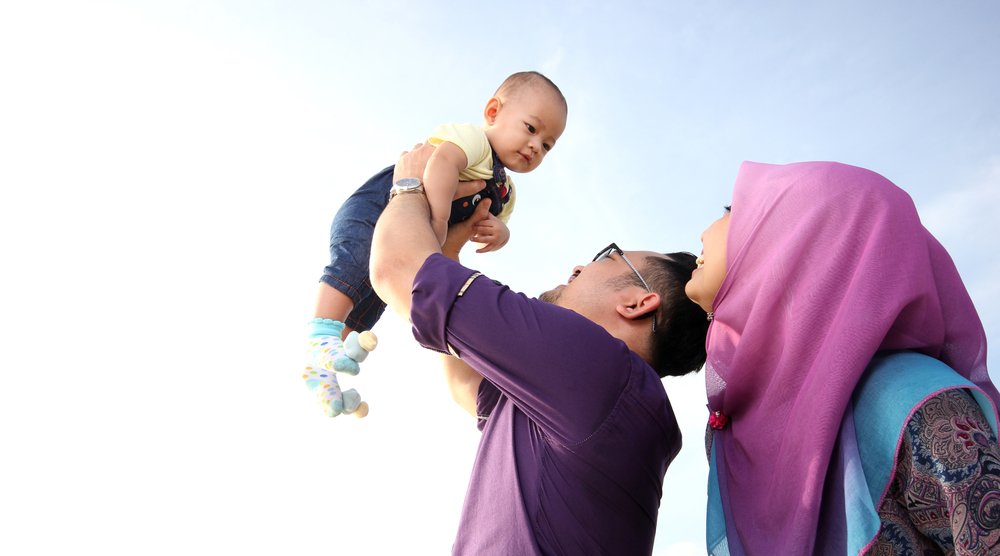Part 1 | Part 2 | Part 3 | Part 4
The emphasis on individual and collective responsibility is part and parcel of the teaching of right-doing, the second fundamental of Islam after belief in the one Allah. No armor is more suitable for resisting evil and the ills of society than Islamic ethical upbringing; it is the element which solidifies the community and preserves it from decay.
The Prophet’s Message bolstered interdependence and solidarity among the newly converted Muslims. The Prophet (peace and blessings be upon him) had molded the Ansar of Yathrib and the Muhajirun of Makkah into an all-encompassing brotherhood which ultimately transcended brotherhood based on lineage and kinship.
The Message gave rise to a closely knit and unified nation which became the font of all authority; the consensus of that nation was law, and its word was decisive.
This nation came to vouch for its members, who became a responsible living force enjoying a faith and possessing a religion perfected only through loyalty to the community, and sacrificing for its cause:
{Think not of those, who are slain in the way of Allah, as dead. Nay, they are living. With their Lord they have provision.} (Aal `Imran 3:169)
In Islamic communities that have preserved Muslim traditions. I have witnessed an incomparable sense of interdependence and solidarity which no social architect could improve on as a basis for a world society.
Tuareg Tribes
I have seen certain Tuareg tribes of North Africa display this blissful solidarity in their lives. No one among them lives for himself only; he lives for his people.
My attention was first attracted to them by a Muslim who left his own country and settled among the Tuaregs in Fezzan[1]. He enjoyed their protection, lived by their gracious bounty, and then departed in search of a living in order to repay them their favor, leaving his family in the protection of this Islamic community.
But ill luck accompanied him, and he was unable to earn enough. He came to us in Misurata in Tripolitania seeking aid; it was offered to him so he could return to his family.
He returned to Misurata after an absence of about a year. It was assumed at first that he was returning from his family, but this was not the case. When asked why he had not gone back to his family after the first encounter, he replied: “Since we last met, I have traded with what came into my hands, and what I now possess is sufficient to take back to the Tuaregs.”
“To the Tuaregs,” I inquired, “or to your children?”
“To the Tuaregs first, for they nourished my children during my absence. I will now be responsible for the children of those absent among them, and I will divide what Allah has granted me between my children and those of my neighbors.”
He was asked whether the entire community shared his attitude toward neighbors, and he replied,
“We share together and alike blessings and misfortunes; grace is with him who displays it, and a member would be ashamed to return to the camp empty-handed, in shame not before his household members but before his neighbors, who await his return in the same manner as does his family.”
Muslim Family and Community
As a modern non-Muslim writer puts it:
In Muslim society the family will always care for its old people, its orphans, its idiots, its ne’er-do-wells and even its delinquents. In this it offers a marked contrast to the modern West, where relatives are all too often looked upon as disagreeable acquaintances and where the misfits are frequently left to their fate or thrust into public institutions.
If Islam is not a welfare state, it at least produces whole welfare families where everyone is cared for whether they deserve it or not[2].
This communal spirit is not a peculiarity of the Tuaregs and similar desert folk, nor is it a condition of their tribal solidarity; it is rather the Islamic spirit, more evident among those who still live in seclusion from modern materialistic life.
This spirit is to be observed in Islamic villages and towns which still bear faithfully the stamp of Islam, whether the town is in the East or in the West and whether the inhabitants are Arabs or non-Arabs, whites or blacks.
Muslim peoples in many localities still live the life of plenitude, contentment, interdependence, and solidarity in search of beneficence. They still remain close to being that righteous society ordained by the propagator of the Message, Muhammad, as contrasted with tens of millions of Muslims who have been seduced by modern materialistic cultures and who live for themselves and prefer to gratify their lusts rather than to be beneficent toward even their relatives, let alone their neighbors.
[1] This was during World War I; I was then with the Muslim resistance force, fighting the Italians in Libya Fezzan, Tripolitania, and Cyrenaica are the three political divisions of Libya
[2] Lt. Gen. Sir John Bagot Glubb, The Great Arab Conquest (London: Hodder and Stoughton Ltd., 1963), p.368
References
Taken with some modifications from Azzam’s The Eternal Message.

